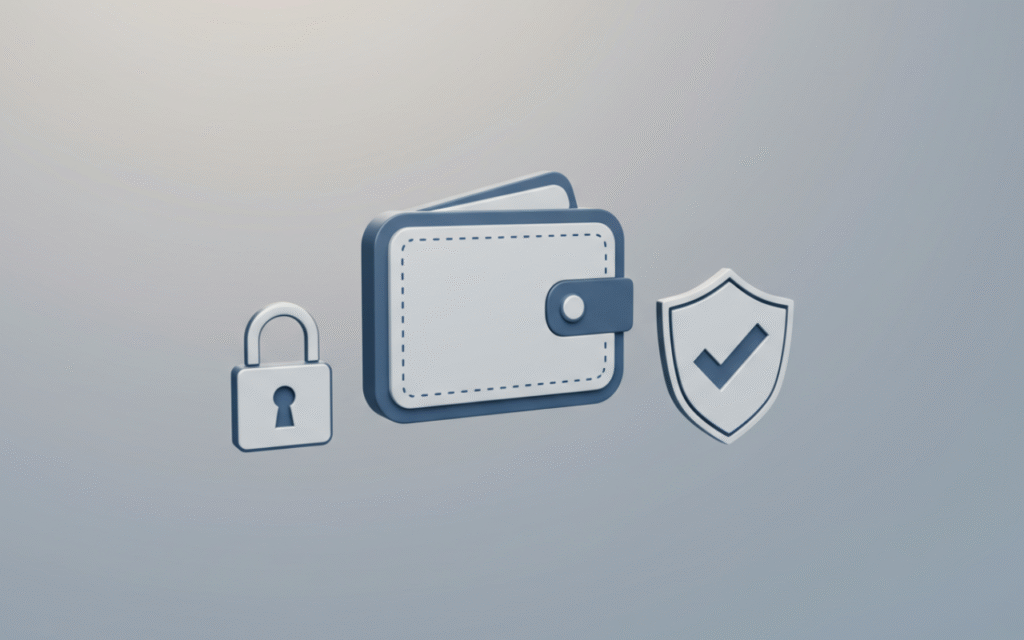Hacking or getting scammed are surefire ways to lose cryptocurrency quickly, with wallets, exchanges, and investment accounts particularly prone to hackers who can steal funds and information from them. Avoiding public Wi-Fi networks, verifying addresses, and maintaining an up to date wallet aren’t just suggestions. They are necessary practices in the cryptocurrency space.

1. Use Strong Passwords
Password protection prevents hackers from accessing personal data and financial accounts, helping safeguard against identity theft and other cyber threats. Identity theft was estimated to have affected over 13 million American adults last year alone, leading to both significant financial loss and reputational harm.
Strong passwords should contain at least 10 characters that include uppercase letters, lowercase letters, numbers, and symbols, including upper and lowercase letters, numbers and symbols. For optimal protection against common words and phrases as well as simple substitutions and repetition.
2. Enable Two-Factor Authentication
Imagine being shocked to find out your crypto wallet had been compromised. Therefore, prioritizing security for it should always be top of mind. Two-Factor Authentication (2FA) makes it almost impossible for hackers to break into your accounts even if they get your password, by requiring not only something you know (such as your password), but also something physical (such as an authenticator app or device with biometric features like facial or fingerprint scanning) in addition to something you know (such as your password).
Employ 2-factor authentication (2FA) on all of your accounts. Using authenticator apps and devices, frequent software updates, vigilance against phishing attacks, and taking other preventive steps will greatly decrease the risks of hacking and other cyber threats that could damage your cryptocurrency investments.
3. Keep Your Seed Phrase Secure
Seed phrases are random strings of 12-24 words designed to recover your cryptocurrency wallet if you lose access. It is vitally important that this recovery phrase remain secure against hacking or theft attempts. Many people recommend writing their seed phrase down and keeping it somewhere safe, such as their personal safe or bank deposit box. Although this approach is effective, it’s not foolproof, someone may accidentally dispose of or steal it. To protect yourself geographically redundant backups should always be maintained of your seed phrase.
4. Avoid Public Wi-Fi
Be it at a cafe, airport or hotel, connecting to public Wi-Fi can put your cryptocurrency at risk. These networks tend to be unsecure and thus make an attractive target for hackers looking for ways to steal either information or funds. Unsecured networks expose your devices to man in the middle attacks, phishing scams, packet sniffing attacks and packet forgery attacks by hackers who intercept unencrypted data packets that contain private information like wallet addresses, passwords and recovery phrases that hackers intercept unencrypted.
This is particularly applicable with mobile hot wallets, therefore it is advisable to avoid public Wi-Fi and utilize secure VPN instead of auto-connect features on devices and always verifying network names before connecting. Additionally, practicing good cybersecurity hygiene, such as enabling two-factor authentication and keeping your software up to date, can further enhance the security of your digital assets.
5. Keep Your Private Keys Secure
Private keys are your gateways to cryptocurrency assets, so its safety must always come first. Stay aware of phishing attacks that might attempt to target wallet private keys and login credentials, be cautious of scams like this as well.
Backup your private keys and wallet backups regularly and store them safely. Multiple encrypted backups provide extra protection against theft or loss. Furthermore, keeping up to date with local cryptocurrency regulations may help ensure any potential changes have minimal impact on how you manage wallets or private keys.
6. Store Your Crypto in a Non-Custodial Wallet
Non-custodial wallets are an increasingly popular choice among crypto investors and traders, as they provide users with complete control over their private keys. But such wallets also require greater responsibility as losing your private key will mean losing all cryptocurrency holdings.
Prevent this by only using wallets not connected to the internet and adhering to strict security protocols such as cold storage, 2FA authentication and keeping your recovery phrase private. Also make regular backups of your wallet across various devices and spread assets among them. Maintaining an updated wallet software can also be beneficial as updates often include patches that address security vulnerabilities.
7. Keep Your Secrets Offline
Hackers in the cryptocurrency space are always coming up with innovative techniques and schemes, so it is imperative that you proactively monitor your wallet. This involves double checking wallet addresses and scrutinizing transactions for any suspicious or illicit activity.
Password managers and encryption tools can also help protect your digital wallet from hacking attempts. These tools encrypt login data while some even offer biometric authentication or other features designed to lower risk of identity theft. Multi-signature wallets add another level of protection by requiring multiple private keys for every transaction, this can prevent unintended transfers even if one or more of your private keys is compromised.
8. Never Share Your Private Keys
Investment in cryptocurrency may be undertaken for its financial benefits, yet protecting your wallet should remain a top priority. By employing strong passwords, enabling two-factor authentication, avoiding public Wi-Fi networks and verifying addresses before sending crypto, you can help to guard it against hackers, phishing scams and unauthorized access.
Private keys are the cornerstone of your wallet, and should never be shared. At Ceffu, they store private keys offline on air-gapped hardware devices located across multiple geographic regions to protect from potential single point of failures.
9. Keep Your Wallet Updated
Cybercriminals often target crypto wallets to obtain user’s assets or steal private keys. Staying up to date and following best practices for updating wallets will help mitigate security risks. Blockchain networks frequently receive upgrades to enhance functionality and security, necessitating wallet updates to stay compatible with these upgrades and avoid critical vulnerabilities that hackers could exploit to steal funds from them. Encryption offers your wallet data an extra layer of protection, making it harder for unauthorized users to gain access to funds stored there. Backups also reduce the risk of losing funds due to device failure or malware attacks.


